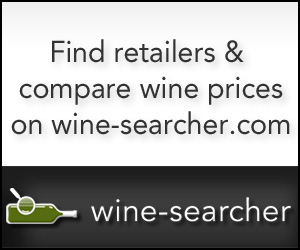As a wine enthusiast you'll have an opinion on the best type of closure
for wine. Please spare two minutes to complete our short online questionnaire:
http://www.wineloverspage.com/cork.
• California Wine Club
http://www.cawineclub.com
• Corkmasters.com
http://www.wineloverspage.com/cork
• Special announcement: Corkmasters.com
• Tasting vocabulary: Extracted
• Administrivia
The term "extracted" has become commonplace in published tasting notes by leading wine writers in recent years ... but what does it mean?
Robert M. Parker Jr. used it 901 times in about 30,000 tasting notes, reports my friend Bob Ross, who is to wine statistics as the sports writer Bill James is to baseball records. "This opaque purple-colored, highly-EXTRACTED wine exhibits surprising force and richness," Parker wrote of the 1994 Alderbrook Zinfandel.
It's not just Parker, though. "Extracted" now spans international boundaries and the Atlantic. The British wine magazine Decanter found "good, ripe, well-EXTRACTED fruit" in the 2001 Chateau Monbrison Margaux, and apparently considered that a compliment despite a "tanky" aroma laden with sulfur.
The Canadian wine writer Tony Aspler noted "soft, well extracted fruit" in the 1997 Wynn's Coonawarra "Michael" Shiraz; and not to be outdone, Wine Spectator's reporters said approvingly of Kanonkop wine maker Beyers Truter that he makes his Pinotage "big, with EXTRACTED fruit and high alcohol, so it's built to last."
So what does "extracted" mean, exactly?
As a wine-making term, "extract" has been around for centuries, and it has a clear and specific definition. According to the Oxford Wine Companion, extract is, "The sum of the non-volatile solids of a wine: the sugars, non-volatile acids, minerals, phenolics, glycerol, glycols and traces of other substances such as proteins, pectins and gums."
In short, extract is what's left if you evaporate all the liquid from a wine ... and in older times, before chemical analysis, that is exactly how wine makers estimated a wine's extraction.
In an age when many wine lovers - and critics - praise a wine for full body and intensity of fruit, it's tempting for wine makers, particularly if they hope for a high critical rating, to put the wine through procedures that will maximize its extract, creating an "in-your-face" wine full of tannins and sweet oak, one that leaps up and demands your attention. This seems to be what writers have in mind when they refer to a wine as being "extracted" or showing "extracted fruit."
But over-extraction occurs at the expense of delicacy, finesse and balance, and not all wine lovers agree that "bigger is better."
When you're reading published notes to help you decide which wine to buy, I suggest using "extracted" as a litmus test. If you enjoy big, fruity, blockbuster wines, then it's a signal to buy. If you prefer balance and complexity, steer clear.
There's a current discussion about extraction and over-extraction and what it signifies in our Wine Lovers' Discussion Group. You're invited to join in, at
http://www.wineloverspage.com/cgi-bin/sb/index.cgi?fn=1&tid=32491.
To subscribe or unsubscribe from The 30 Second Wine Advisor, change your E-mail address, switch from weekly to daily distribution, or for any other administrative matters, click to http://www.wineloverspage.com/wineadvisor/admin.phtml. In all administrative communications, please be sure to include the exact E-mail address that you used when you subscribed, so we can find your record. If you must unsubscribe, please take a moment to tell us why you're leaving, and to offer any comments or suggestions you may have. We do not use our E-mail list for any other purpose and will never give or sell your name or E-mail address to anyone.
I welcome feedback, suggestions, and ideas for future columns. To contact me, send E-mail to wine@wineloverspage.com.
All the wine-tasting reports posted here are consumer-oriented. In order to maintain objectivity and avoid conflicts of interest, I purchase all the wines I rate at my own expense in retail stores and accept no samples, gifts or other gratuities from the wine industry.
Wednesday, July 31, 2002
Copyright 2002 by Robin Garr. All rights reserved.




